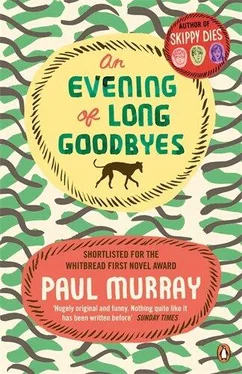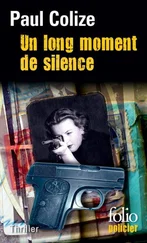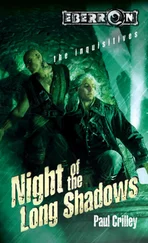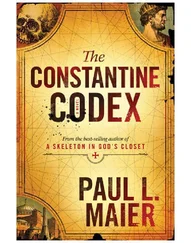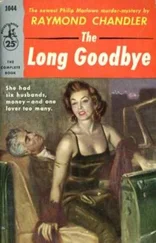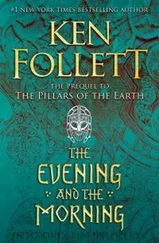The second grouping, which had little interaction with the first, was the foreigners. These came in all shapes and sizes, and, the way Frank told it at least, had appeared more or less overnight; though no one seemed to know where from, or how exactly they had ended up here. ‘Maybe they came out of that hoo-ha in Bosnia,’ I surmised. ‘Like Mrs P and her lot.’
‘That one or another one,’ Frank said with a shrug. ‘Never any shortage of wars.’
None of them seemed to be employed, and it struck me that this situation could work to our advantage in terms of getting someone in to do the cleaning at relatively little expense. Frank, however, put the kibosh on this straight away. ‘Me ma was a cleanin lady, Charlie,’ he said. ‘It’d be weird, like.’
At night the estate was taken over by the local Youth, and everybody who didn’t have an interest in marauding or terrorizing the elderly was expected to go indoors or suffer the consequences. The Youth amused themselves in a variety of ways. Sometimes they’d set fire to things, or spray-paint swastikas on the doors of asylum-seekers; occasionally someone would arrive in a stolen car, providing a few hours of merriment as they raced it up and down. Mostly, however, they simply stood in bristling gangs on street corners, selling each other heroin. The buildings rang out with cries; inevitably a baby would start wailing, and through the wall I would hear the neighbours argue. A couple of times gunshots echoed from the direction of the Coachman: Frank told me how men from the flats would go down with shotguns and balaclavas to rob it, and then return the next day to buy drinks with the takings.
Sometimes, as I languished at the windows, I would see a pair of eyes peeping back at me from the tower block opposite, and I would think of Mirela waving angel-like at me from the Folly; and then I would see the moon-faced children with their supermarket trolley, always the one pushing and the other standing up looking over the side, little fingers wrapped around the metal rim — rumbling by like dusty pilgrims who had forgotten their purpose and their destination and now made only endless circles around these same dead-end streets.
It hardly needs to be said that I was far from comfortable cohabiting with Frank. In the early days especially, I felt much as Jack must have, living at the top of the Beanstalk with that Englishman-eating giant. One effect of the Hobbesian nightmare around me, however, was to make Frank, by comparison, seem that bit less frightening; and I had so many other things to brood over that before long I had almost grown accustomed to his small acts of kindness, his microwaved dinners, his bad jokes –
‘Here, Charlie, d’you hear about the midget that walked into the ladies’ jacks?’
‘Can’t say I have, old man…’
‘Yeah, he got a box in the face!’
‘Ha ha, yes, very good, well, better turn in, I suppose —’
‘It’s only eight o’clock, Charlie.’
‘Yes, busy day tomorrow, though,’ hauling myself up from the couch.
‘Busy?’
‘Well, not really busy , I mean thought I might watch a film or two… I say, old chap, that reminds me — lend me another fifty pounds, would you? We have to get some decent wine in. I can’t drink any more of that wretched petrol-station Riesling, it’s giving me an ulcer.’
‘Eh, yeah, Charlie, no problem,’ and he’d peel the notes from the fat wad in his pocket.
‘Thanks. Well, good night then.’
‘Night, Charlie.’
Most evenings he went out drinking with his mates, regaling me next day with the stories of their exploits — how such-and-such a fellow ‘Ste’ had bought ‘whizz’ from such-and-such a fellow ‘Mick the Bollocks’, except when he inhaled it it turned out it wasn’t ‘whizz’, it was stuff for killing ants, and Ste had gone berserk and started eating plates and trying to pull out his eyeballs. ‘You should come out with us some night, Charlie,’ he’d say from time to time. ‘They’re great crack, the lads are.’
‘That’s all right,’ I’d say, as the stories alone were enough to make me feel quite unwell.
I suppose I was too caught up in my brooding ever to ask myself what Frank might have hoped to gain from having me stay. I didn’t know how things stood between him and Bel. Whatever had happened, her name was never spoken in the apartment; but sometimes I would catch him looking at me in a peculiar, wishful sort of a way, for all the world as if he expected me to pull her out of a hat; and I would wonder shudderingly if he planned to use me to take revenge on her, or keep me as some manner of Love Hostage.
By and large, though, he came and went without disturbing me; I could sit and watch television uninterrupted. Having been abandoned by the world, I’d decided that now was the perfect time to complete my Gene Tierney project, or, if one wanted to split hairs, to begin my Gene Tierney project. Every afternoon after breakfast, when Frank was at work, I would close the curtains (a formality, given the permanent darkness of the room), sit in the armchair with a notepad and a glass of the gruesome Riesling and watch a film, beginning at the very start with The Return of Frank James — a diabolical performance for which the Harvard Lampoon named Tierney Worst Female Discovery of 1940 and more than one critic compared her unfavourably to Minnie Mouse. To me in my woebegone state, however, her films were like dispatches from some kinder upper realm — flashes of a faraway lighthouse to a becalmed and fog-bound ship. I needed them; I watched compulsively, and soon I had got all the way to The Razor’s Edge (1946).
This was one of my favourites. The hero, played by Tyrone Power, is a pilot who has returned from World War One totally disaffected by the horrors he has seen there and unwilling to take any part in the postwar boom, even though Gene, his fiancée, refuses to marry him unless he gets a job. The movie opens at a fabulous country-club ball under the stars, where in a little moonlit arbour she takes him aside and tries to convince him of the merits of the soaring economy. She tells him America will soon be so rich that it will dwarf anything in history; she tells him that it’s a unique opportunity for a young man like him and he ought to leap at the chance to be a part of it. But Tyrone Power, gazing lugubriously into the middle distance, tells her that it is, in his eyes, utterly meaningless. He then informs her that he is removing to Paris, to be a bum.
She follows him to France, and there’s a famous scene later on when she brings him back to her apartment and, in a remarkable black dress that resembles the tenebrous sheath of a dagger, makes one last effort to seduce him into the mercantile world. The dress was designed by Oleg Cassini, the brilliant Russian exile whom Tierney had married in 1941, and in it she proves too much for even the saintly former pilot to resist, at least for the duration of a kiss.
I confess to feeling a certain affinity with Tyrone Power in this movie, in terms of our defiant stands against the emptiness of modern society; and I might have considered following his lead and relocating my stand from Bonetown to the more sympathetic environs of Paris, had I thought there was even the slightest chance of a beautiful woman in a black or any other colour dress pursuing me there. As time went by, however, it became increasingly clear that this would not be the case.
Since I had come here no one from Amaurot had so much as called me, not even Mirela, in spite of our promising conversation in the ballroom that time. Burnin Up had opened in a small theatre behind Tara Street station the same night I’d been excluded from the Radisson. There was a short review of it in the newspaper I’d lifted from the hotel lobby, not wildly enthusiastic, but certainly approving of what it called the ‘unflinching debut’ of the Amaurot Players. It might have been on another planet for all I heard from them. So much for Mirela’s gratitude, I thought miserably; now I was no longer lord of the manor — now that I was homeless, just as she had been! — it seemed that everything was forgotten.
Читать дальше
